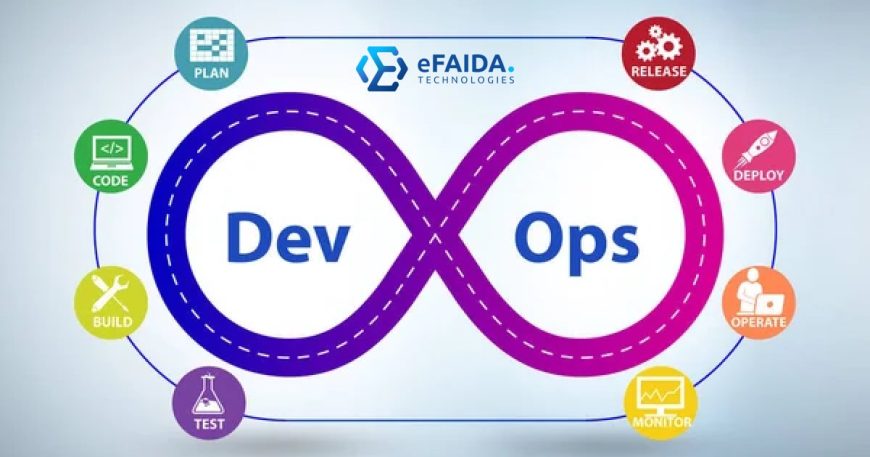Introduction
DevOps as a managed service (DaaMS) is one of the latest innovations that has brought significant change across organizations that handle the management of software development and IT operations. Outsourcing of actual implementation of DevOps is also another way that will help businesses to be more efficient, deliver solutions faster, and collaborate more effectively. This article discusses the way DevOps as a managed service increases reactivity and gives the reader the main advantages it entails.
Streamlined Processes
The main role that DevOps, especially DevOps as a managed service, plays in improving efficiency is that it tends to eliminate a number of crucial steps. Third, managed service providers refine best practices that need to be followed while also knowing where and how to obtain the automation tools needed to deliver software professionally in a timely manner.
Continuous Integration and Continuous Delivery (CI/CD)
CI/CD pipelines are integrated methods for integrating code, testing it, and deploying since they automate the task which eradicates mistake-prone steps and increases the rate at which code is released. Outsourced IT solutions can include CI/CD pipelines to help make sure software is released as quickly as possible now.
Scalability
Thus, managed service providers have a solution that is highly flexible, and capable of accommodating the organization’s needs as it evolves. With this scalability, you are able to handle many tasks at once without compromising quality and productivity.
Cost Efficiency
DevOps as a managed service can be beneficial to an organization in many ways with costs being one of the benefits, especially for the small organization. Due to the implementation of DevOps practices through third-party vendors, capital costs such as human resource expenditures for staffing the function and expenses incurred for procuring and maintaining software and hardware are eliminated.
Enhanced Collaboration
People relate DevOps to the engagement of both development and operation departments, hence decision-making and problem-solving processes are performed more effectively and efficiently. MSPs do this to support the interaction and integration processes that enable project collaboration and teamwork.

Focus on Core Business Activities
Outsourcing of DevOps professionals helps organizations to delegate the responsibility of managing the technical IT infrastructure towards the delivery of the company’s business functions such as product creation and client management. In so doing, managed service providers take charge of the operational issues, and thereby improve the efficiency of business operations.
Conclusion
Managed DevOps as a Service (DaaS) is a very useful model for an organization that is aiming to achieve maximum productivity with its software deployment and IT teams. Outsourcing DevOps practices in a business environment allows for the organization to introduce processes for CI/CD, gain economies of scale, cut costs, facilitate communication, and strategically avoid core competencies of a business environment.
That is why DaaMS is a unique approach that is effective and unites everyone to engage in dynamic and progressive development methods and systems. Thus, by cooperating with experienced MSPs and using such service providers’ tools and methodologies, companies can work more efficiently, launch solutions and services faster, enhance effective collaboration, and attain a competitive advantage in the relevant market.
FAQs about DevOps as a Managed Service
- What is DevOps as a managed service?
DevOps as a managed service (DaaMS) is a process in which DevOps practices are partially or fully delegated to a third-party provider. This is the act of combining and sustaining small-scale initiatives and activities meant to improve software development and IT functioning. - How does DevOps as a managed service boost efficiency?
DaaMS also increases productivity by automating flows, introducing CI/CD processes, leveraging flexibility, providing affordable setups, improving communications, and enabling a firm to concentrate on its main business. - What are the key benefits of using DevOps as a managed service?
These are reduction in contacts and cycle time, faster delivery, improved communication, flexibility and manageability, cost-effectiveness, and reduced concentration of resources on core competencies. - Is DevOps as a managed service only for large enterprises?
Indeed, DaaMS is appropriate for organizations of all types of size, regardless of the business they are in. The solutions that managed service providers provide are often elastic, which makes it possible for them to be adapted to the required solutions and costs that small businesses require. - How can DevOps as a managed service help with scalability?
MSPs provide solutions that are flexible to accommodate the organization’s changes, which makes it easier for the organization to plug and play. This type of scalability makes it possible for organizations to expand the processing capabilities to deal with higher volumes of work without necessarily relating to ability or performance. - What role does automation play in DevOps as a managed service?
Automation is one of the keystone constituents that define DaaMS. It optimizes procedures for creating and delivering software, provides fewer human conditions to cause mistakes, and shortens the time to release software to market.




